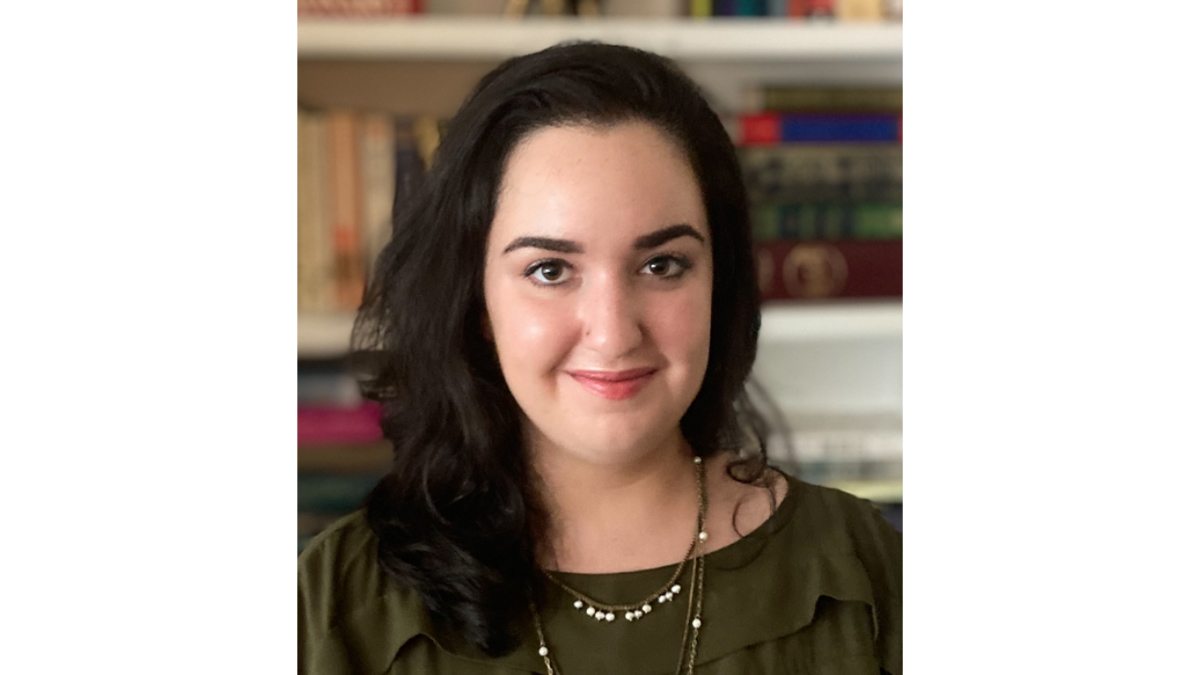Carolina student spends summer serving Chapel Hill community
Rising senior Aida Al-Akhdar is interning at the Compass Center, helping the organization establish Orange County’s new domestic violence shelter and serving as an advocate for survivors of domestic violence.

One-in-three women and one-in-five men will experience domestic violence in some form, either physically or emotionally. During the early months of the pandemic, the need for support for domestic violence survivors skyrocketed.
“Domestic violence is more than just a fist to the face. It’s exercising power and control over somebody else,” said Aida Al-Akhdar, a rising senior majoring in political science and English and minoring in German studies. “It’s really an issue that we should all have in the back of our minds because it either directly impacts us or somebody we love.”
Al-Akhdar is spending her summer addressing the issue head-on as an intern at Chapel Hill’s Compass Center, which is the domestic violence agency of Orange County. The Compass Center is dedicated to preventing and ending domestic violence by helping community members become self-sufficient.
In her role, the Tar Heel is serving as an advocate for survivors and helping the center establish a new domestic violence shelter that will serve the Orange County community.
Al-Akhdar’s internship is part of the APPLES Service-Learning program based out of the Carolina Center for Public Service. The program pairs UNC-Chapel Hill students with community or governmental organizations and funds a variety of internships in the spring semester and during the summer.
The internship at the Compass Center is Al-Akhdar’s second summer position serving the community around UNC-Chapel Hill. As a 2019 Moxie Scholar, she worked with the Town of Carrboro to increase diversity on advisory boards and the inclusion of women and minority-owned business enterprises in the government procurement process. That role of creating equitable policy, Al-Akhdar said, prepared her to work at the Compass Center.
“The work that I did last summer really helped prepare me for this position and made me want to continue to develop those skills of policy work and the application of law and policy,” she said.
Using both the skills she honed as a Moxie Scholar and what she’s learned in her women’s studies and political science classes at Carolina, Al-Akhdar is helping the Compass Center establish policies for a new domestic violence shelter. The new shelter is scheduled to open in October and will provide ongoing support for survivors through various resources such as financial and career planning. Al-Akhdar’s policies will help guide the operation of the shelter.
“We don’t have a domestic violence shelter in Orange County,” she said. “It is exciting that I’m able to help usher in a shelter. A lot of what I’m doing is working with the new emergency housing coordinator to develop these policies based on best practices from other domestic violence shelters with a similar model.”
The shelter will ultimately allow the Compass Center to support more of the people Al-Akhdar meets during her other role with the center: an advocate on the domestic violence crisis hotline.
Al-Akhdar’s goal as an advocate is to connect people in crisis with the resources they need. She works to find them housing, helps explain legal processes and provides referrals to the appropriate agencies. She also provides critical emotional support in a time of need.
It’s a taxing role, but one that provides Al-Akhdar with a direct impact on her community.
“You can put out a fire one day, but tomorrow when you wake up, there will be three more fires to put out. Domestic violence never sleeps. It can be very frustrating,” she said. “The clients I’m able to help, that makes me proud. That’s a feeling you can’t put into words.”
Al-Akhdar said the experience has been eye-opening for a future career in social-change-oriented advocacy and policy development. While she doesn’t plan on staffing a crisis hotline long term, she hopes to remain on the frontline of change.
“I could definitely see myself continuing to work on policy development for community organizations and nonprofits in order to provide services delivery for my community and underserved communities,” she said.




